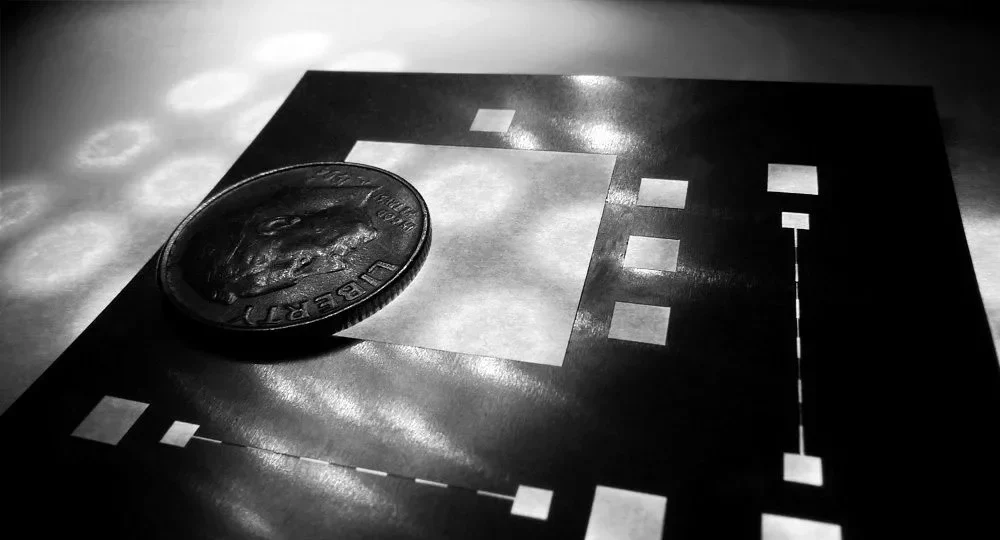July 25, 2013; Lanham, MD: Potomac Photonics, a leader in micro hole drilling technology, has recently completed a project making shadow masks for work leading to energy efficient computing at the Massachusetts Institute of Technology in Cambridge, MA.
With ever increasing energy consumption demands placed on microelectronics, R&D groups worldwide have turned to developing novel technologies such as Spintronics. Literally putting a new “spin” on how to approach electrons, Spintronics taps into the inherent spin of an electron rather than putting focus on the electron’s charge to design new solid state devices.
According to MIT Research Assistant Jean Anne Currivan, “a main driver for the field happened around 2007 with the invention of magnetic tunnel junctions that convert SPIN information back to charge information.” In her research, Ms. Currivan uses shadow masks as a faster way to test magnetic tunnel junctions. She goes on to explain, “Shadow masks allow you to test right after deposition and saves quite a few steps in the overall process.”
The problem Ms. Currivan faced was that the existing shadow masks were too thick. With a thinner mask, she could also use smaller pinholes that are used as a path for current so that there is no tunneling. For material ranging from .025 mm to .05 mm thick she needed to make 10-micron diameter holes.
Potomac Photonics often works on feature sizes in the 1 to 200 micron range in a variety of materials including silicon, metals, organic polymers, diamond, glass and ceramics. Further, their expertise extends into methods for achieving high aspect ratios, accuracy and repeatability, which are all key for optimal research results.
“I could have made these myself in the lab, but the learning curve was high for the size of micro hole drilling we needed. That’s why I sought out Potomac Photonics. Their capabilities allowed me to save the time and energy of doing it myself.”
The shadow mask was fabricated as part of the Potomac Educational Manufacturing Initiative which allows Universities, Research Institutions, and students to access high-tech manufacturing services at a substantial discount.
For over 30 years, Potomac Photonics has been a leader in digital fabrication, working in advanced technologies such as microfabrication, 3D Printing, laser marking, and small hole drilling. Potomac’s contract services span prototyping to production, helping clients develop miniature products and bring them to market. Potomac has been recognized by both commercial and government agencies for innovation in areas such as medical device, electronics, aerospace, and automotive manufacturing. Potomac’s high-tech facility, located in Lanham, MD, is ISO 9001:2008 and ISO 13485:2003 certified. Please visit the website at http://www.potomac-laser.com


